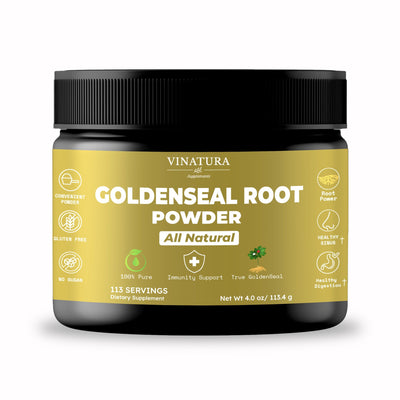
Does Milk Thistle Help Lower ALT Levels?
Milk thistle has long been recognized as an herb with impressive effects on enhancing liver health and regulating ALT levels - an enzyme that reflects liver function. The following article will explore whether Milk Thistle reduces ALT levels and how this occurs, helping you make the best choices for your health!
Before exploring further, please read the disclaimer located at the end of this webpage.
Key Takeaways
- Scientific Evidence: Studies suggest milk thistle may help lower ALT levels.
- ALT Levels are a marker of liver health; high levels can indicate liver damage.
- Milk Thistle is derived from the Silybum marianum plant, known for its liver health benefits.
- Milk Thistle uses are generally safe, but consulting a healthcare provider before use is necessary.
- Lifestyle changes and other supplements can also help manage ALT levels.
Does milk thistle help lower ALT levels?

The answer to this question is undoubtedly yes.
Milk Thistle generally has many positive effects on liver health, including reducing liver and gallbladder damage, supporting liver functions, improving the condition of liver patients, aiding liver detoxification, providing antioxidant and anti-inflammatory effects, and helping regulate ALT levels.
The effects of Milk Thistle on the liver, in general, and ALT levels, in particular, include both direct and indirect impacts. Milk Thistle directly combats liver-damaging agents and free radicals attacking cells, indirectly supporting other liver functions, thereby generally reducing ALT levels. The detailed mechanisms of Milk Thistle will be explained below.
What are ALT Levels?

ALT stands for alanine transaminase. This is an enzyme primarily found in the liver. When liver cells are damaged, they release this ALT enzyme into the blood. Scientific publications also indicate that higher ALT levels reflect liver damage or other liver problems [1].
High ALT levels also cause certain liver diseases; ALT levels increase even before you show symptoms of the disease. Therefore, paying attention to ALT levels and making necessary adjustments is essential to ensure you do not face liver-related health issues.
How Does Milk Thistle Impact ALT Levels? Scientific Perspective
As mentioned above, Milk Thistle can support liver function in several ways:
- Studies have demonstrated that silymarin can protect against liver damage caused by toxins such as acetaminophen. For example, a study by Campos et al. showed that silybin dihemisuccinate (a silymarin component primarily found in milk thistle) could protect liver cells from oxidative stress and lipid peroxidation [2]. This reduces liver damage and minimizes ALT production, thus avoiding severe liver damage.
- Additionally, silymarin in milk thistle can support liver regeneration, acting as an anti-inflammatory and antioxidant to protect liver cells from harmful agents [3]. As a result, ALT levels gradually decrease over time, and new ALT production is significantly reduced.
Is it Safe to Take Milk Thistle to Lower ALT Levels?
Milk thistle and its extracts are safe for most users and do not often record serious side effects on consumer health. However, although rare, milk thistle can interact with specific medications/medication components.
Therefore, before use, you may consult a specialist to receive advice on your condition, avoiding unnecessary risks to your health or family. Additionally, you can start with a small dose and observe your body's reactions to ensure safer use.
Other Ways to Lower ALT Levels

Besides milk thistle, many other ways exist to improve liver health and reduce ALT levels. Some of these include:
- Using supplement products extracted from milk thistle is one of the ways to benefit from this herb to regulate ALT levels directly.
- Improving diet with a regimen rich in fruits, vegetables, and lean protein to support liver health.
- Regular and suitable exercise according to your health condition will also help you achieve a healthy body and a healthy liver.
- Avoiding alcohol and stimulants as they are detrimental to your health.
When Should You Contact a Doctor if You Have High ALT Levels?

High or low ALT levels are difficult to observe visually or through body symptoms, at least until your liver is severely damaged. ALT needs to be measured through blood tests for accurate determination. However, if the results are confirmed, visit a doctor immediately to receive appropriate advice and suitable treatment methods to address liver health issues before it is too late.
Conclusion
It can be said that Milk Thistle shows potential as a natural remedy to reduce ALT levels and support liver health. This herb affects your liver both directly and indirectly and is safe for the majority of users but can interact with some medication components. Therefore, please consult a healthcare professional before using it to ensure your health and your family.
References
- [1] ALT Blood Test. medlineplus.gov/lab-tests/alt-blood-test/
- [2] “Milk Thistle (PDQ®).” Cancer.gov, 17 Feb. 2022, www.cancer.gov/about-cancer/treatment/cam/hp/milk-thistle-pdq.
- [3] “Milk Thistle.” Mount Sinai Health System, www.mountsinai.org/health-library/herb/milk-thistle.
Author

Product Disclaimer
The dietary supplement products mentioned on this website are formulated based on scientific research and adhere to FDA guidelines for dietary supplements. However, the content of the articles has not been evaluated by the Food and Drug Administration (FDA) and is not intended to promote or endorse any specific product. Any products sold on this website are not intended to diagnose, treat, cure, or prevent any disease.
Opinions and Endorsements
Any claims, statements, or opinions expressed in the articles are those of the author(s) and do not necessarily reflect the views or opinions of the manufacturers of the dietary supplement products. The products sold on this website are separate from the content of the articles and are not directly endorsed or associated with the information presented here.
Liability Disclaimer
The author(s) of the articles, website, and manufacturers of the dietary supplement products do not assume any liability for any potential consequences arising from the use of the information provided in the articles. It is recommended that individuals consult with a qualified healthcare professional before making any dietary or lifestyle changes, including the use of dietary supplements.
Product Usage
Please refer to the product labels and packaging for specific usage instructions and guidelines for the dietary supplement products sold on this website.
Customer Support
For any concerns or questions regarding the dietary supplement products, please contact our customer support team, who will be more than happy to assist you.





Leave a Comment
Be the first to comment.
What do you think?